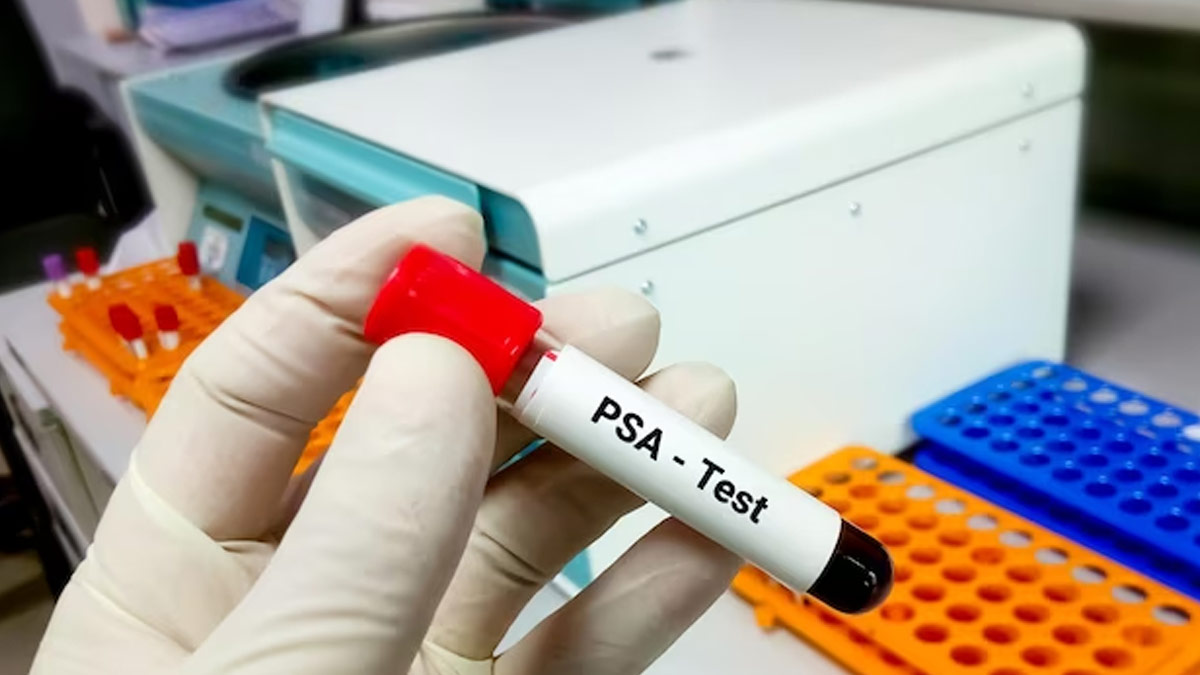
Sudden pain in the pelvis, urinary problems, or blood in the urine or semen are the alarming symptoms of prostate cancer, one of the most common cancers among men that can be asymptomatic. It is advisable not to overlook the symptoms and consult a healthcare provider, who may recommend getting a Prostate-Specific Antigen (PSA) test. But what is a PSA test? How does it help in prostate cancer diagnosis? We spoke to two experts to understand the same.
What Is A PSA Test?

Dr Gowshikk Rajkumar, Consultant Oncologist, Apollo Clinic, described PSA test as a preliminary screening test for patients suspected with prostate cancer. “The level of prostate specific antigen indicates if the patient will require additional testing to confirm the diagnosis or if they can be only monitored serially,” he added.
“Prostate specific antigen is a protein found exclusively in prostatic tissue,” explained Dr Kunjan Lila, HOD Surgical Pathology, Metropolis Healthcare, adding that it is usually elevated in different prostatic pathologies including carcinoma. “It is a sensitive marker; an easy, cost effective and a useful tool for early screening and detection of prostate cancer," she added, citing a study conducted at Metropolis that looked at the association between PSA levels with the subsequent tissue diagnoses in cancer detection in a cohort of 932 patients. “The results corroborated with the literature and proved that the risk of cancer is minimal with a PSA less than 4 ng/ml whereas an elevated PSA is associated with pathology and hence, even a borderline elevation should not be ignored,” Dr Lila said.
Furthermore, the doctor shared that in cases with PSA at 4ng/ml, it needs to be followed up with digital rectal examination, transrectal ultrasonography, and tissue diagnosis to conclude. General guidelines recommend starting screening by PSA at age 55, earlier in case of a positive family history.
Also Read: Testicular Cancer: How To Know If The Cancer Has Spread?
Understanding Prostate Cancer And Its Symptoms

While we now know what a PSA test is, let’s understand what prostate cancer is.
Dr Lila said, “Prostate cancer is the second most frequent cancer and one of the leading causes of cancer death among men. It is usually a very slow growing cancer and most patients do not have significant symptoms until the cancer reaches an advanced stage.”
According to a research article published in the Journal Frontiers of Public Health, prostate cancer accounted for an estimated 14 lakh new cancer cases and 3.75 lakh deaths in 2020. In India, prostate cancer cases for the periods 2010, 2015, and 2020 were estimated as 26,120, 28,079, and 30,185, respectively, as per data published in the Indian Journal of Urology (IJU).
Some of the common symptoms of prostate cancer include:
- Difficulty in urination
- Weak or disturbed urine flow
- Frequent urination
- Feeling that the bladder is not empty
- Pain or discomfort in the pelvic area, around the waist
- Blood in the urine or semen
- Erectile dysfunction
- Fatigue and weakness
- Loss of appetite
- Weight loss
- Swelling in the legs or fee
Things Men Should Keep In Mind

Prostate cancer, though not much in prevalence when compared to other cancers, should not be ignored, especially when there are certain warning signs after a particular age, said Dr Rajkumar. He added, “Symptoms, such as frequent urination, incomplete urination, frequent wakes at night to urinate after the age of 55-60 should be addressed to the clinician and should primarily start with PSA testing before any other invasive procedures.”
Dr Lila concluded, “If it (prostate cancer) is detected early, when it is still confined to the prostate gland, it has a better chance of successful treatment. Hence, screening by PSA is recommended for early detection. Risk factors include increase in age (most diagnosed in men over 60 years of age; rarely in those younger than 40 years), black race, family history of prostate or breast cancer (BRCA1/BRCA2 related), and obesity.







